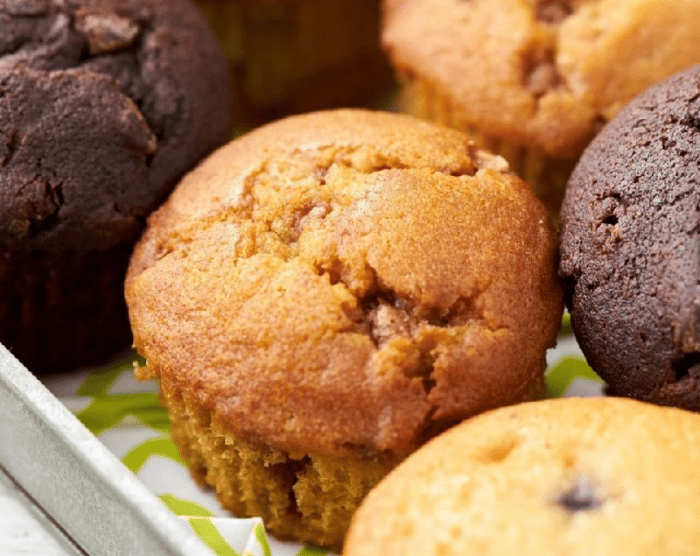As a child, do you remember being given a lot of food and being told to gulp down every single bit of it? Have you encountered parents who think that fat children make healthy and happy children? These are among the reasons for the rise of childhood obesity cases worldwide.
What Is Obesity?
Obesity means having too much fat content in the body. To describe it scientifically, obesity is distinguished by having a weight measurement and body mass index well above the norm.
It results from high amounts of calorie intake and very little expenditure of energy.
Obesity is a rapidly growing problem not only in the United States but all over the world. A recent study has shown that in the United States alone, 65% of the population is heavier.
All around the world, an estimated three hundred million adults are heavier.
Fifteen percent of the United States’ child population has also been reported heavier. Around the world, an estimated twenty-two million children aged five and below are heavier weight.
What Causes Childhood Obesity?
Like any other medical condition, childhood obesity may trigger by several factors, most often in combination.
Obesity may either be: acquired from external factors, hereditary, caused by psychological factors, or secondary to a present condition.
- Acquired. This may be a result of poor eating habits and a lack of physical activities; burning calories obtained from previously ingested food help contribute to a spike in weight gain.
- Hereditary. Children born to heavier parents are more prone to being heavier themselves. This is usually brought about by shared unhealthy eating habits observed by the parents.
- Psychological factors. Obesity may have come secondarily to children overeating to cope with stress and/or negative emotions such as; boredom, anger, sadness, anxiety, or depression.
- Illnesses. Various conditions such as hypothyroidism, Cushing’s syndrome, depression; and other neurological concerns may lead to obesity and weight gain in children.
Are There Any Complications?
If a child continues to indulge in poor eating habits and does not engage in physical activities to burn off the calories.
Childhood obesity may develop into life-threatening complications. Including; diabetes, high blood pressure, heart disease, sleep problems, cancer, and other health concerns. Heavier kids are likely to grow up as heavier adults as well.
Most often than not, heavier children get subject to teasing and public humiliation.
To some point, it even leads to harassment, violence, and even discrimination by his family. This causes children to grow up with low self-esteem and depression.
Furthermore, What can be done to prevent childhood obesity?
It is never a good idea to ignore signs of obesity in children. Intervention should be taken to establish good health before your child’s obesity worsens.
Set An Achievable Weight-Loss Goal.
Your goals shouldn’t be too far-fetched and should still allow room for normal growth and development. Start small, so as not to overwhelm or discourage your child with the changes you’re planning to implement.
Managing Your Child’s Diet.
Keep a journal or diary of your child’s daily food. This helps come up with a more accurate dietary assessment. This food journal should be as detailed as possible.
Additionally set aside time for physical activities.
Exercise is necessary for continuous weight loss. This also helps redistribute body fat into muscles. Again, start small to avoid discouraging the child. Build up exercise time slowly for better results.
In conclusion, childhood obesity is a condition that is fully reversible. The best thing to do to avoid this kind of dilemma for your child is to set a good example.
Show them how good eating habits and a healthy lifestyle help you enjoy life more. This is the best way to show them you care for them too.
The Realities of Childhood Obesity. By John Smith
Helping Your Child Through Childhood Obesity.
A child that suffers from being heavier is one that should regard as having a temporary disease.
Moreover, obesity condition is dangerous for a child’s health and has an effect on his social life, self-esteem, and confidence.
When you decide that you want to fight and beat childhood obesity. You should think carefully or a plan and a tactic you will use to fight this condition.
The three major keys to losing weight and having a successful diet plan are regular physical activity.
Performed On A Set Schedule And Without Exception.
Physical activity will encourage the child to get better. Hopefully, cause him or her to focus on activity rather than on food or the discomforts of the diet.
The next key to fighting childhood obesity is naturally a diet. Making a diet plan should be done after advice from a diet professional that has all the tools; and information about your child and his or her needs.
By making a realistic plan that will take a long time to complete you will gradually adopt new eating habits.
Showing the child that there are different kinds of foods, and making the child conscious of the things they eat and their effect on weight and the body.
Increasing awareness of the effect of different foods. This is a very important thing since it clearly identifies the cause-and-effect relationship with the child.
Beating Childhood Obesity:
The last key to beating childhood obesity is as important and as natural as the first two.
It is slowly and gradually changing the behavior of the child; and sometimes of the whole family, the new behavior patterns can treat as rules first.
Therefore, make sure you explain why it is not good to eat candies.
And more impotently you should make sure that your child knows that from time to time; They can make an exception and have candy.
Do not delete and block sweets from their lives completely since this usually has the opposite effect on kids.
The behavior change is a major one and it affects all the rest of the keys mentioned here.
You should try and set rules in the beginning. If you can have a family meeting and set those rules it will be beneficial for everyone.
Therefore, making the children feel that they are setting these rules, you should encourage your kids to set rules and live by them.
When you first start you can also join their activities to show them, that they are not alone.
And from time to time you could explain; how important it is to follow the rules and the benefits that are waiting at the end of the road.
Encourage Heavier Children.
A technique I heard about some time ago uses imagination and positive thinking; to encourage heavier children to maintain a diet and physical activity routine.
The parents have a weekly talk with the child and they go over all the last week’s events. Good and Bad, trying to explain what happened and why. Not forgetting to compliment the child on his or her achievements.
Once the events are analyzed and the points are made clear the parent and the child close their eyes and imagine. How it would be a month or two ahead?
With more weight loss and better fitness and daily routine, talk about all the benefits of losing weight. Like nicer clothes, better love, more energy, social admiration, and so on.
In conclusion
Therefore, Just make sure that the goals are realistic and can be achieved in a month or two of hard work.
When your child achieves this you should talk to him or her and demonstrate; how belief and willpower have a real effect on life.
"The rise of childhood obesity has placed the health of an entire generation at risk."
~ Tom Vilsack Tweet
Sources include-
- Centers for Disease Control and Prevention. Obesity.
- Journal by, Diary of a Journal Planner
Articles are written by.
- The Realities of Childhood Obesity. By John Smith
- Helping Your Child Through Childhood Obesity. By Jillian Smith




















Well written. Excellent information not only for children, but adults can benefit from this as well. Thanks for sharing. Have a great week.
Hello Shaunelius,
Thank you for your feedback, and your continuous support, you have a great weekend yourself.
Thank you.